03/20/19
K-State Current - March 20, 2019
K-State Current is a weekly news update for the Kansas Board of Regents to apprise the Regents on a few of the many successes and achievements made by K-State faculty, staff and students.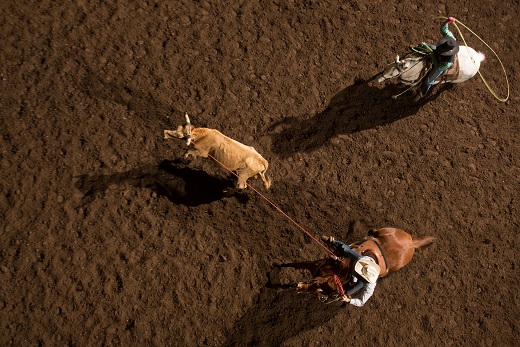
K-State News
S BA announces Great Plains Technology and Manufacturing Cluster initiative at university
 The Great Plains Technology and Manufacturing Cluster, which is led by the Kansas State University Technology Development Institute, serves the entire state of Kansas and western Missouri and joins a portfolio of programs supported through the Small Business Administration's Regional Innovation Cluster program
The Great Plains Technology and Manufacturing Cluster, which is led by the Kansas State University Technology Development Institute, serves the entire state of Kansas and western Missouri and joins a portfolio of programs supported through the Small Business Administration's Regional Innovation Cluster program
The U.S. Small Business Administration has announced the addition of the Great Plains Technology and Manufacturing Cluster, or Great Plains TMC, initiative to the programs it supports through the nationwide Regional Innovation Clusters initiative. The program has been awarded $500,000 for the first year with a four-year option for a total award of up to $2.5 million over five years.
The Great Plains Technology and Manufacturing Cluster, led by the Kansas State University Technology Development Institute, serves the entire state of Kansas and western Missouri and joins a portfolio of programs supported through the SBA's Regional Innovation Cluster program, which is designed to support geographically concentrated groups of interconnected businesses, suppliers, service providers and related institutions in a particular industry or field. The goal of this new initiative is to assist manufacturers and technology entrepreneurs, particularly in rural regions, in making the critical connections to innovation resources required to protect, develop, launch and grow new products and businesses in the service region.
The Great Plains TMC is partnering with a wide range of economic development entities, including the Kansas Department of Commerce, NetWork Kansas, the Kansas Small Business Development Centers and a number of rural regional development offices across the service region to increase awareness, connectivity to resources and collaboration across the Great Plains.
Jeff Tucker, executive director of the university's Technology Development Institute said, "We are extremely pleased that the Small Business Administration has chosen to support our efforts to expand the connectivity of technology and manufacturing entrepreneurs and other small business across the state to the technical resources needed to be competitive in today's global economy. Whether it be education, engineering, business planning or a combination of all these, our mission is to ensure that individuals and organizations are aware of and have access to the resources available to assist them."
"We are pleased about the collaborative effort and economic impact this cluster initiative will have, including opportunities for Kansas businesses to develop new products, expand their businesses and increase the size of their skilled workforce," said Patty Clark, deputy secretary of the Kansas Department of Commerce. "The collaboration between our agency and the Great Plains Technology and Manufacturing Cluster initiative will help to continue the modernization and growth of businesses in Kansas."
Additional information about the Great Plains Technology and Manufacturing Cluster initiative can be found at greatplainstmc.org.
Sustainable Intensification Innovation Lab at K-State establishes SOILS Consortium with global partners
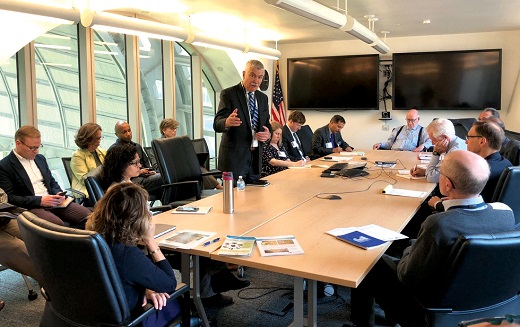 Rob Bertram, chief scientist for USAID’s Bureau for Food Security, speaks March 15 during the launch of the SOILS Consortium at USAID headquarters in Washington, D.C. The consortium is a combined effort from The Feed the Future Innovation Lab for Collaborative Research on Sustainable Intensification (SIIL), based at K-State, International Fertilizer Development Center and USAID.
Rob Bertram, chief scientist for USAID’s Bureau for Food Security, speaks March 15 during the launch of the SOILS Consortium at USAID headquarters in Washington, D.C. The consortium is a combined effort from The Feed the Future Innovation Lab for Collaborative Research on Sustainable Intensification (SIIL), based at K-State, International Fertilizer Development Center and USAID.
Three global leaders in agricultural research and international development are joining together to improve livelihoods of the world’s poorest populations by increasing soil fertility.
The Feed the Future Innovation Lab for Collaborative Research on Sustainable Intensification (SIIL) at Kansas State University, the International Fertilizer Development Center and the United States Agency for International Development jointly committed to the creation and support of a consortium called the Sustainable Opportunities for Increasing Livelihoods with Soils.
The primary goal of the SOILS consortium is improving the soil fertility in the most vulnerable regions of sub-Saharan Africa.
“Healthy soil is key for producing healthy plants and healthy animals, which will ultimately lead to healthy humans,” said Vara Prasad, K-State University Distinguished Professor and director of SIIL. “Fertile and healthy soils are the foundation for nutritious food production and important for resilient and sustainable livelihoods.”
The consortium will bring together important national and international partners in developing and implementing soil health and fertility-enhancing innovations across large geographical regions.
“The SOILS consortium will provide a global platform to bring multidisciplinary teams of scholars from biophysical sciences, social sciences, policymakers and donors to discuss and identify holistic solutions and develop a roadmap toward enhancing soil fertility and restoring the health of our soils,” said Jerry Glover, senior sustainable agricultural systems advisor for USAID.
Through innovative research, coordination, capacity building, networking, data sharing and communication approaches, the SOILS consortium will work to provide sustainable solutions to build resilient households with access to nutritious food.
Zach Stewart, SOILS consortium program manager and research assistant professor with SIIL, believes the consortium model is critical for achieving these goals.
“Though there have been numerous initiatives aiming to improve soil fertility in sub-Saharan Africa, they have often been siloed and limited in duration, and often duplicated due to limited coordination,” he said. “The SOILS consortium aims to bring together leading soil health activities across major production zones in sub-Saharan Africa, and through synergies with these key partners, to help develop unified regional strategies to improve soil health.”
Upendra Singh, director of research at IFDC, says nurturing healthy soils is crucial to healthy people, countries and environment. “Increasing efficiency, sustainability and resilience of agricultural systems requires inter- and transdisciplinary approach that the SOILS Consortium provides through its vision and core partners,” Singh said. “People across all walks of life are beginning to realize that healthy and fertile soils are key to political stability, food and nutritional security and environmental stewardship. This further highlights the timeliness of the SOILS Consortium.”
By combining the strengths of each of the partners’ organizations, the SOILS Consortium will implement a holistic training and support system with measurable impacts for success. In order to provide a sustainable solution to increase the long-term benefits of soil health and household nutrition, the consortium will use technical training to improve inorganic fertilizer systems and encourage organic material usage to strengthen legume and agroforestry systems and to enable producers to access markets through new technology and practices.
The SOILS Consortium was officially launched March 15 in Washington, D.C., by Albin Hubscher, IFDC president and CEO, and Rob Bertram, chief scientist of USAID’s Bureau for Food Security.
“The SOILS consortium brings together IFDC’s leadership and global reach with some of the nation’s leading research universities, creating a platform to tackle critical soil fertility challenges that are limiting progress in achieving food security and reduction of extreme poverty, especially in sub-Saharan Africa,” Bertram said.
At the launch, Hubscher highlighted the IFDC’s vision and outlined how it has focused on increasing and sustaining food security and agricultural productivity in more than 100 developing countries through the development and transfer of effective and environmentally sound crop-nutrient technology and agribusiness expertise.
“The IFDC is excited to support the SOILS consortium and is looking forward to actively engaging with all partners to improve soil fertility,” he said.
Initial partners in the SOILS consortium are: United States Department of Agriculture; the University of Colorado; the University of Nebraska; Michigan State University; and Auburn University. The consortium will be expanded based on the need and strengths of the other organizations.
K-State Faculty Highlights
Kaup named fellow of the Interior Design Educators Council
Migette Kaup, professor of interior design, was recently awarded the designation of fellow of the Interior Design Educators Council.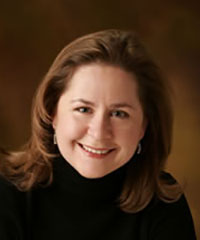
The council is the leading association and authority on interior design education in North America. Its purpose is to advance the interior design profession through advocacy, expansion of the body of knowledge of the discipline and excellence in education for interior design. Kaup joins a distinguished group as there are currently only 45 living members of the IDEC Council of Fellows.
"Dr. Kaup represents the greatest professional standards for a design educator; service above self, ambitious and meaningful teaching and research that changes lives through discovery and application in design," said Margaret Portillo, University of Florida, in announcing the award.
"We are extremely proud of Dr. Kaup's accomplishments," said Barbara Anderson, head of the apparel, textiles, and interior design department. "Her steadfast commitment to the advancement of interior design has raised the profile of Kansas State University and the interior design program in the College of Human Ecology."
"I am honored and humbled to be recognized as one of the fellows of IDEC," Kaup said. "This group of esteemed educators and scholars have created a lasting legacy for interior design education and the profession."
K-State Student News
Two students receive Critical Language Scholarships from U.S. State Department
Two Kansas State University students have received Critical Language Scholarships from the U.S. Department of State and American Councils for International Education to study abroad this summer.
Lauren Ailslieger, sophomore in open option, Topeka, will study Russian in Bishkek, Kyrgyzstan, and Katelyn Tietzen, doctoral student in history, Kelowna, British Columbia, Canada, will study Arabic in Amman, Jordon.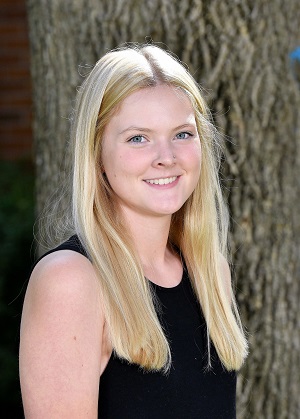
"The national applicant pool for the Critical Language Scholarships is surprisingly large and really competitive, so this is an impressive recognition for Lauren and Kate," said Jim Hohenbary, director of the university's Office of Nationally Competitive Scholarships. "In addition to being a great opportunity for language study, the program affirms and builds upon their prior accomplishments."
The scholarship program requires students to only speak the target language for the duration of the program. Each student will be immersed in the language by attending up to five hours of language class a day for five days a week in addition to cultural excursions and staying with a host family.
"This program is going to really push my language abilities to the next level and will allow me to go much deeper in my study of Russian language through independent study," Ailslieger said.
Ailslieger started studying Russian in high school and developed a passion for the language after she visited Russia in 2016. Since that time, she's taken all levels of Russian language classes at Kansas State University and is looking forward to being immersed in the language and culture.
"Aside from all of the practical reasons to study Russian — such as its role in the global economy and U.S.-Russia relations — it is a beautiful language," Ailslieger said. "It's this huge puzzle and it's so fascinating putting all of those pieces together."
Ailslieger is a member of Alpha Delta Pi, where she serves as chapter foundation ambassador. She also is president of Creators and incoming vice president of the Intercollegiate Horse Show Association hunt seat team. She graduated from Washburn Rural High School and she is the daughter of Kris and Rhonda Ailslieger, Topeka.
Tietzen started learning Arabic in 2014 to read documents written in the language as part of her graduate research on Iraq in the Cold War. She traveled to Oman for Arabic training in summer 2018 and said she is excited to visit another Arabic-speaking country. 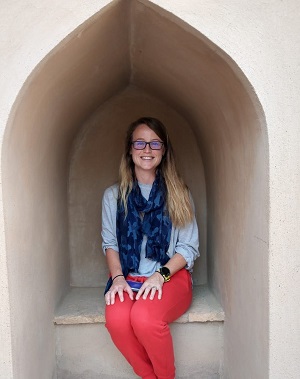
"The Critical Language Scholarship program will not only help me continue my language development and improve my proficiency, but also give me that edge later when I started applying for jobs," Tietzen said. "Whether the jobs are academic or nonacademic, this program is extremely selective and highly respected in both camps."
In addition to the Critical Language Scholarship, Tietzen has received the Hoover Institution and Archives Silas Palmer Research Fellowship, Smith Richardson Foundation World Politics and Statecraft Dissertation Fellowship, The Society for Historians of American Foreign Relations' Michael J. Hogan Foreign Language Fellowship, and the Foreign Language and Area Studies Fellowship. She received her bachelor's degree from the University of Wisconsin, Madison and her master's degree from Clemson University. She is the daughter of John and Janet Tietzen and a graduate of Kelowna Secondary School in Kelowna, British Columbia.
Madison Tischhauser, senior in industrial engineering, was awarded first place in the Institute of Industrial and Systems Engineers South Central Regional Conference paper competition. 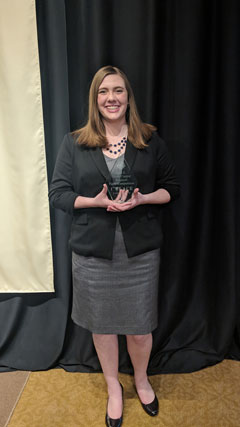 Tischhauser and seven other students from the industrial and manufacturing systems engineering department attended the three-day conference hosted by Lamar University in Beaumont, Texas.
Tischhauser and seven other students from the industrial and manufacturing systems engineering department attended the three-day conference hosted by Lamar University in Beaumont, Texas.
Tischhauser's conference paper, "Assembly Line Improvement Project for Great Plains Manufacturing of Salina, KS," was inspired by her summer internship with Great Plains Manufacturing. In developing a method to assess production capacity, a bottleneck in the process was identified. This bottleneck was then diffused by creating a new work station, shifting workers and evenly distributing the workload. Through this project, the company could save an estimated average of $75,308 per year without the addition of another worker.
This award qualifies Tischhauser to represent the IISE South Central Regional Conference at the IISE Annual Conference and Expo May 18-21 in Orlando, Florida.